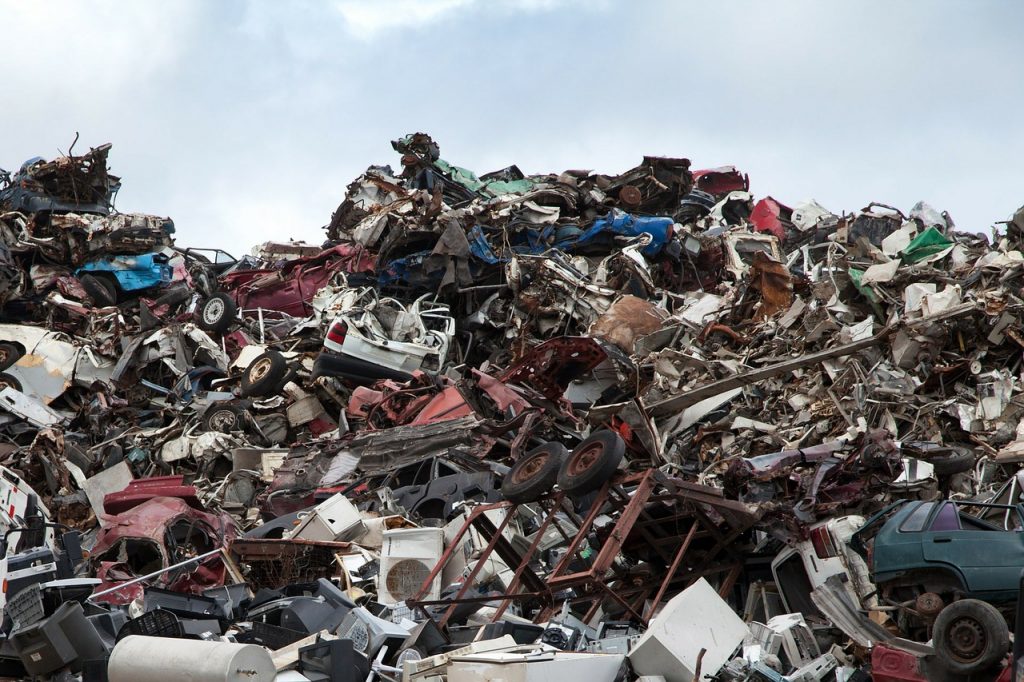Contrary to popular belief that handling waste started when something was disposed of, waste management begins at the moment of inception or production of anything. A product commences with design, and then goes through manufacturers, distribution, and utilisation, then proceeds through the stages of the waste cycle of reduce, reuse and recycle. Every phase in this cycle gives opportunities to rethink the necessity of the product, to redesign to lessen waste potential, and finally, utilise its full potential. Waste management aims to reduce the negative effects of garbage on the environment, human health and the world’s overall well-being and aesthetics.

In Exchange For Climate Change
Many of our daily activities produce greenhouse gases. Driving a car, for example. The engine burns fuel, which in turn emits carbon dioxide. The use of fossil fuels, food production and consumption, land clearance, building and construction; all of these create a varying amount of harmful gases. There have been many studies to prove that increased levels of these gases cause Earth to warm in response due to its heat-trapping nature. Continuous emission of these greenhouse gases causes our planet’s climate to change rapidly. Global temperature is rising, the oceans are warming and ice sheets are shrinking. These pieces of evidence are incredibly compelling and its implications are very alarming. Unfortunately, the carbon footprint we produce can not be entirely eradicated but it can be reduced. Waste management that is done properly will decrease the intensity of these greenhouse gases and stall the unequivocal warming of the climate system.
Trash Stealth And Human Health
As part of the Earth’s biodiversity, the advantages of proper waste disposal are also very valuable for human health and well-being. It was mentioned beforehand that some dangerous gases remain as compounds in the air we breathe. Waste is the primary pollution generator. Most of the air pollution originates from waste by-products. Constant exposure can result in a variety of harmful effects on our health, ranging from asthma to more serious respiratory conditions. Proper handling of waste effectively protects the environment and reduces pollution, be it air, water or land, ultimately helping people stay sickness-free. Moreover, it also reduces vermin and pests that could further spread various diseases.
Conservation For The Next Generation
As the population grows, people use more resources to generate commodities that can’t be fully replenished. This puts a major strain on our planet. Consequently, humanity’s prevailing lifestyle can not be sustained at the current rate of production, distribution and consumption. Waste management seeks to address this by finding opportunities to maximise the use of the world’s finite resources by avoiding the unnecessary production of waste. A prime and common example of this is the production of paper where many trees are cut down to make paper. Alternatively, old paper and other reusable materials can be recycled into a new paper, such as paper shredding services. Using this method will considerably reduce deforestation. Moreover, there is an advent of using waste materials to create energy through different processes such as incineration and pyrolysis, which makes functional fuel commodities such as ethanol and other synthetic fuels. These alternatives will protect biodiversity and secure enough of Earth’s resources for the next era.
Clean Living, Life Loving
Finally, effective management of waste is necessary for building sustainable and livable communities. Proper waste disposal keeps the surroundings fresh and tidy. Personality And Social Psychology Bulletin, a scientific journal, published a study in 2010. The participants were asked to describe their living spaces. Women who reside in messy houses were found to be more depressed and fatigued. The researchers also discovered that these women express increased levels of cortisol, a stress hormone. On the other hand, women who live in clean homes with less waste, described their space as ”restorative” and ”restful” are generally happier. The study proved that a clean environment reduces stress and increases productivity.
You Reap What You Sow, You Get What You Throw
Looking at the big picture stresses how important it is to manage waste cautiously and ethically for the future of our world and our children. Producers need to be aware of the environmental implications of their materials and methods. At the same time, consumers need to maximize the utilization of products and begin proper garbage sorting to help the community’s waste disposal system. It is a shared responsibility and accountability. It is a cycle of action and reaction. At the end of the day, what goes around really comes around and what we do today in terms of our limitless waste management options, will dictate what happens in our tomorrow.

